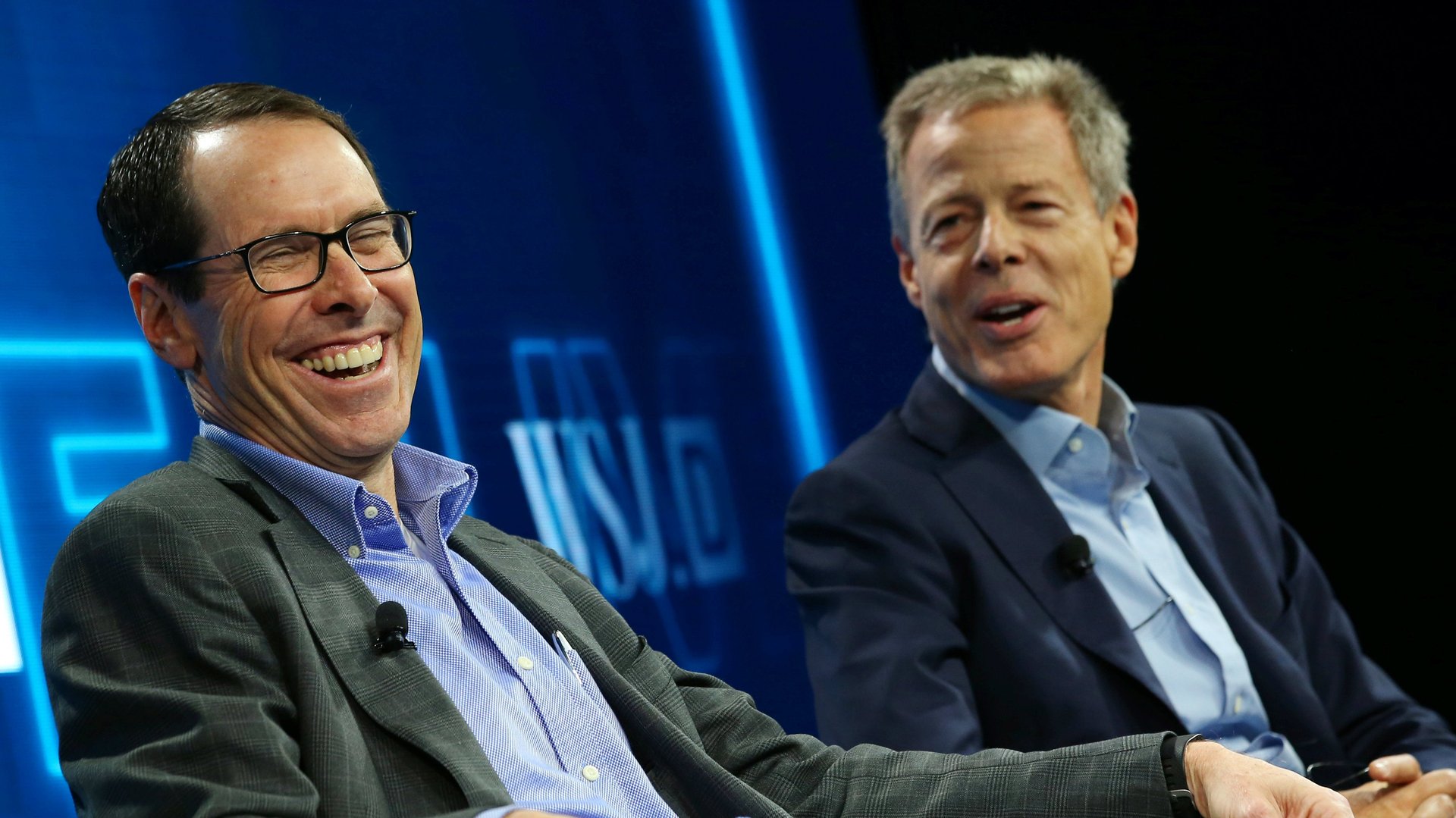The AT&T merger isn’t the biggest threat to cable prices—that would be net neutrality
In the first major anti-trust lawsuit in decades, the Trump administration charges that consumers will see higher prices for pay-TV prices if it allows the proposed $85.4 billion merger between AT&T and Time Warner to go through. But it’s the government’s own rules on net neutrality that will more likely hurt consumers. Trump’s communications commissioner pushed through a repeal of the open-internet rules put in place by his predecessor late last year.


In the first major anti-trust lawsuit in decades, the Trump administration charges that consumers will see higher prices for pay-TV prices if it allows the proposed $85.4 billion merger between AT&T and Time Warner to go through. But it’s the government’s own rules on net neutrality that will more likely hurt consumers. Trump’s communications commissioner pushed through a repeal of the open-internet rules put in place by his predecessor late last year.
The companies and the government presented dueling economic scenarios earlier this week with the justice department’s economist contending that pay-TV prices will rise, and AT&T and Time Warner’s saying prices would go down. The companies claimed that they are most threatened by the increasing role tech giants like Facebook and Google are playing in targeting digital ads.
The tech companies have far better data to target ads, much like the data held by companies such as AT&T which have millions of mobile phone and cable subscribers. TV content companies like Time Warner can’t compete with the digital ad giants without access to the data held by “pipe” companies such as AT&T, they argued. They’ve traditionally had to rely on outside services like Nielsen to guess at who their ads should be targeting.
In reality, the end of net neutrality is may have a greater effect on consumer pricing for entertainment access than this merger. The Federal Communications Commission is implementing rules that will allow internet service providers, such as AT&T, to charge companies for “fast lanes,” or faster download speeds, as well as block websites or services entirely for users (although ISPs have vowed not to do this). This new pay-to-play internet could raise prices for most users, and shut out new startups fighting for customers across slower connections.
-Michael J. Coren contributed to this article